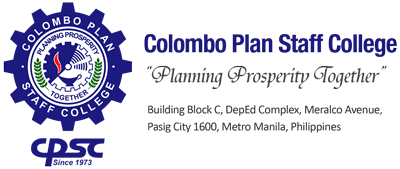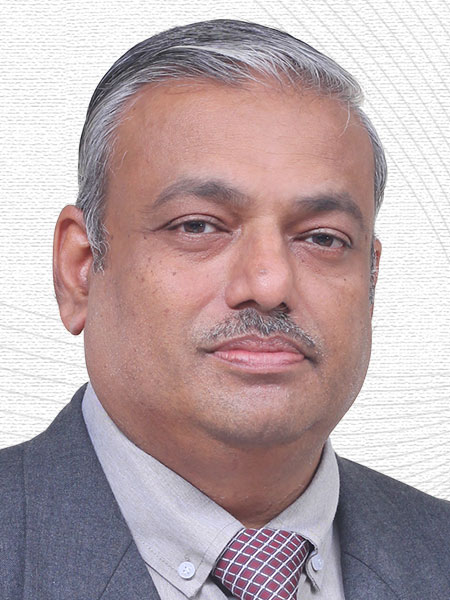
DATE: September 4 - 8, 2023 |
VENUE: NITTTR Chandigarh |
ORGANIZERS: Colombo Plan Staff College (CPSC) Ministry of Education, Govenment of India National Institute of Technical Teachers Training & Research (NITTTR Chandigarh) |
Regional Program on
Role of Business Incubators in Encapsulating Sustainable Development: A TVET Perspective
September 4-8, 2023
Background
Incorporating sustainable development from a Technical and Vocational Education and Training (TVET) viewpoint is essential thanks to business incubators. In line with the Sustainable Development Goals (SDGs), TVET focuses on offering individuals training in entrepreneurship, skill development, and vocational education. Entrepreneurs, particularly those in the TVET industries, can begin and expand their enterprises at business incubators while implementing sustainable practices. From the standpoint of TVET, business incubators play the following important roles in capturing sustainable development:
Abilities Development: Business incubators can provide training programs and workshops to improve the technical and entrepreneurial abilities of budding entrepreneurs in partnership with TVET institutions. By encouraging self-employment and supporting innovation in TVET industries, incubators support sustainable development by providing individuals with essential information and skills.
Mentorship and Advice: Entrepreneurs can receive mentoring and advice from seasoned professionals through incubators. This assistance aids business owners in overcoming the difficulties associated with establishing and running sustainable enterprises. Mentors can help TVET firms incorporate sustainable practices including resource efficiency, waste reduction, and environmentally friendly production procedures into their business models.
Resources: Business incubators make it easier to get the materials required for sustainable development. Infrastructure, shared spaces, and access to networks of suppliers, financiers, and future clients are all included in this. Incubators work with TVET entrepreneurs to overcome entry hurdles and increase their chances of success while incorporating sustainability concepts into their daily operations.
Networking and Collaboration: Incubators foster a collaborative ecosystem where business owners can meet and cooperate with others who share their interests. Incubators promote the sharing of concepts, best practices, and technology pertaining to sustainable development through networking events, workshops, and industrial alliances.
Funding & Investment Possibilities: Business incubators frequently have contacts with investors, venture capitalists, and funding organizations interested in assisting sustainable enterprises. Incubators boost their clients’ prospects of obtaining funding by helping them create strong business plans. As a result, TVET businesses can put into practice sustainable business strategies, make investments in eco-friendly technologies, and support the monetary and environmental objectives of sustainable development. Business incubators can contribute to the measurement and reporting of the impact of TVET companies on sustainable development. Incubators can demonstrate the positive contributions made by entrepreneurs in TVET areas by monitoring key performance indicators (KPIs) relating to environmental, social, and economic sustainability. Policymakers, investors, and the general public can learn from this data on the development and potential of sustainable enterprises nurtured in TVET programs.
In conclusion, from a TVET standpoint, business incubators play a crucial role in capturing sustainable growth. Incubators support and enable entrepreneurs to build and scale sustainable enterprises in TVET areas by offering skill development, mentoring, resources, networking, funding opportunities, and impact evaluation. Incubators support a culture of innovation and sustainability in TVET ecosystems through various efforts, which help accomplish sustainable development goals. CPSC plays important role in developing TVET agenda in Asia Pacific region by promotion, conducting training and consultation. Technopreneurship is one of TVET agenda in order economically strong and sustainable in long run in TVET ecosystems through various efforts, which help accomplish sustainable development goals.
Objectives
At the end of the course, participants should be able:
- To help TVET faculty members and policy makers in understanding the unique challenges and issues posed by their respective national environment in attaining the sustainable development;
- To understand the process of a business set-up and green entrepreneurship;
- To orient the TVET faculty members and policy makers towards role of business incubators in achieving number of SDGs; and
- To imbibe various aspects of establishing and managing business incubators alongside the business incubation process.
Expected Outputs and Outcomes
- Understand the complete process of a business incubator set-up and its management especially focusing on green entrepreneurship
- Prepare an action plan for establishment and management of business incubator
- Appreciate the role of TVET system in the interplay between business incubator and sustainable entrepreneurship
Program Contents
Special Lecture: Entrepreneurship in TVET Perspective
Theme Papers
- Theme Paper 1: Technopreneurship and Correlation in TVET Sector
- Theme Paper 2: Entrepreneurship as Startup Business Career
- Theme Paper 3: Starting a Business and its implementations
- Theme Paper 4: Incubation Process (Incubators and Implementation)
- Theme Paper 5: Creating Effective and Sustainable Business Incubators-Way Forward
- Theme Paper 6: Experiential Learning (Coaching and Mentoring) in Incubation
Workshop & Group Work Activities (GWA)
- Workshop 1: Framework Model on Starting a Simple Business
- Workshop 2: Preparing Effective Framework on Sustainable Business Incubators
- GWA 1: Issues and Challenges in Entrepreneurship
- GWA 2: Preparing Action Plan and Presentation by group
Instructional Strategies
The program involves different learning methods such as:
- Theme paper presentations
- Group Work Activities
- Case Studies
- Web-Based Teaching and Learning System through OnCOURSE
- Action Planning
Program Management and Resource Persons
|
|
|
|
|
|
|
|
|
|
|
|
|
|
|
|
Program Schedule


















